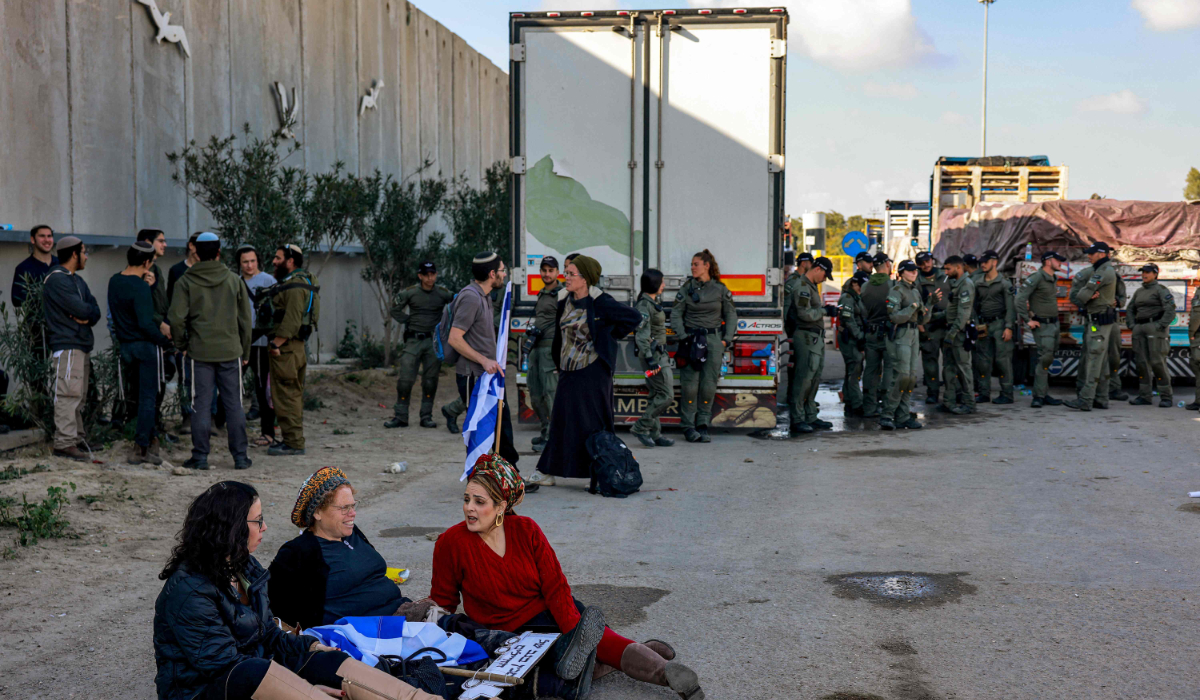JERUSALEM: Israel has imposed financial restrictions on the main UN agency providing aid in the Gaza Strip, a measure which prevented a shipment of food for 1.1 million Palestinians from reaching the war-battered enclave, the agency’s director said on Friday.
The restrictions deepened a crisis between Israel and UNRWA, whose operations have been threatened following Israeli accusations that some of its workers participated in the Oct. 7 attack that triggered Israel’s war in Gaza. Those accusations have led major donor nations, including the US, to suspend funding to the UN organization and left its future in question.
UNRWA’s director, Philippe Lazzarini, said on Friday that a convoy of food donated by Turkiye has been sitting for weeks in the Israeli port city of Ashdod.
FASTFACT
UNRWA’s director said that a convoy of food donated by Turkiye has been sitting for weeks in the Israeli port city of Ashdod.
The agency said that the Israeli contractor they work with received a call from Israeli customs authorities “ordering them not to process any UNRWA goods.”
That stoppage means 1,049 shipping containers of rice, flour, chickpeas, sugar and cooking oil — enough to feed 1.1 million people for one month — are stuck, even as an estimated 25 percent of families in Gaza face catastrophic hunger.

Right-wing Israeli women protesters sit together near Israeli security forces standing guard by the Egyptian trucks bringing in humanitarian aid supplies to the Gaza Strip, on the Israeli side of the Kerem Shalom border crossing with the Palestinian territory on February 6, 2024, as demonstrators gather to block the trucks from entering amid the ongoing conflict between Israel and the Palestinian militant group Hamas. (AFP)
The World Food Programme warned on Friday that Gaza could be plunged into famine as early as May. The UN food agency defines a famine as when 30 percent of children are malnourished, one-fifth of households face acute food shortages and two of every 10,000 people are dying from hunger or malnutrition.
Israel has long railed against UNRWA, accusing it of tolerating or even collaborating with Hamas and perpetuating the 76-year-old Palestinian refugee crisis. UNRWA, which serves about 6 million Palestinians whose families were displaced during the war surrounding Israel’s creation in 1948, denies the charges. But the tensions have only intensified following the latest allegations by Israel.
Juliette Touma, communications director for the agency, said that UNWRA’s bank account with Bank Leumi, which the agency has held for decades, was also frozen this week. In addition, Touma said that Israeli customs authorities notified the agency that UNRWA will no longer be granted tax exemptions.
Israel’s Finance Minister, Bezalel Smotrich, tweeted on Thursday that “the state of Israel will not give tax benefits to terrorist aides.”
Smotrich, a far-right ally of Prime Minister Benjamin Netanyahu, didn’t respond to a request for comment.
The agency has been able to reroute other aid shipments through Port Said in Egypt, but Lazzarini warned that the holdup means further difficulties in the already challenging task of aid distribution to Gaza. About 80 percent of Gaza’s 2.3 million people have been displaced by the war.
UNRWA is the main provider of aid to Palestinians in Gaza, but Israeli bombardment and combat between Israel and Hamas has made much of the territory too dangerous for aid convoys to cross.
For the last two weeks, the agency has been unable to deliver aid to around 300,000 Palestinians estimated to still be in the northern half of Gaza, where the World Food Programme says food insecurity is the worst.
Lazzarini said efforts have instead focused on the 1.3 million displaced Palestinians sheltering in the makeshift tent camps of Rafah, a city on the border with Egypt where the agency relies on local police to escort aid convoys to distribution points and prevent theft. But that has also grown increasingly challenging, as Israeli warplanes bomb targets in the city.

























